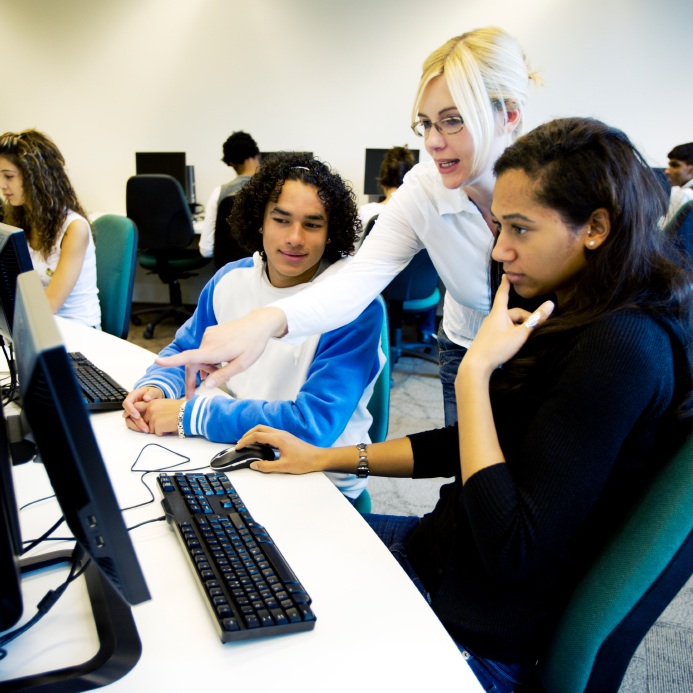
Like any other major undertaking, research papers require extensive planning. This section provides you with both a teachers’ guide and a students’ guide so that you don’t miss any of the steps. Go to the Download Zone (below) for more info!
Check this out: Leaning into AI to Create More Meaningful, Rigorous Research Projects.
A word of advice: Check out the Nonfiction Reading Strategies section in READING before you dive into this project. The biggest mistake we make when teaching the research paper is assuming that students know how to process what they read in the course of doing research. Not to state the obvious, but it’s hard to write about something that you just plain don’t understand. Also, do not assume that students know how to skim. See my TLC Blog post on the overlooked skill of skimming.
Writing curriculum? Check out this Sample Grade 10 ELA Research Paper Unit. Many thanks to Tricia Lindstedt and her colleagues at PCSST, who collaborated on this work.
What will they write about? Keep in mind that question-driven assignments are more effective than topic-driven ones. For more on this point, see my TLC Blog post here.
Check out the History Writing: DBQ Essays page for more information on how to prepare students for research and writing, esp. in history. The "DBQ Approach" is like writing a research paper with training wheels, so it's a good place to start. See also the PARCC Prep page--specifically the Research Simulation Writing Task--for more ideas about how to help students build effective essays.
For support on how to teach students to build "quote sandwiches" (context, evidence, and explanation) and "quote lasagna," check out these TLC Blog posts.
Considering Project-Based Learning instead of a traditional research paper? Check out this Edutopia piece, "Project-Based Learning and the Research Paper" by Brandie Provenzano, which includes lots of practical tips.
Check out PBS Learning Media, which provides "access to 100k+ standards-aligned digital resources, productivity tools that can help you integrate content into your instruction, and professional development opportunities that will strengthen your teaching skills."
Here are some additional helpful research-oriented Websites, which in turn contain links to other useful sites (Many thanks to Mitch Brenner at KIPP-Infinity for these leads!):
- American History 102 (designed by Professor Stanley K. Schultz of UW-Madison)
- The Authentic History Center
- HarpWeek-Explore History
***Here is a research paper project that has been effective with middle school students:
|
Career Problem-Solving Research Project: The basic premise behind this research project is that people who love their jobs spend most of their time solving problems that they care deeply about. Students confront these questions: What job would you like to do? What kinds of problems would you like to solve? If you could learn more about these problems, what kinds of questions would you like to explore? In order to clarify their own career interests, students complete a simple survey on the 16 Career Clusters. Here’s a link to one that has been mimicked on many Websites: http://breitlinks.com/careers/career_pdfs/InterestSurvey.pdf Timing: 10-15 minutes to take it, plus another 5-10 minutes to add up the results and read about the clusters. Students select a cluster, narrow it to a particular career, and brainstorm on problems that someone with this career might be trying to solve, then think of questions that arise related to these problems (which could be quite divergent, and that’s fine). For details, check out the full explanation of the Career Problem-Solving Research Project in the Download Zone. |
Here's another suggestion for a research paper assignment: Empathy Research Paper Assignment.
"6 Signs of Credible Sources: Do Unreliable Websites Sabotage Your Research?" by Jack Milgram is an excellent blog post with useful guidance. For additional student writing models and guides on how to judge sources, check out Write Source. For more information on plagiarism, copyrights, and citing sources (esp. online sources), this Webpage has links to more than a dozen useful Websites.
Check out "10 Things Every Literacy Educator Should Know About Research" by Nell K. Duke and Nicole M. Martin (2011, The Reading Teacher, vol 65, issue 1, pp. 9-22).
Here's another helpful piece: "Teaching Adolescents How to Evaluate the Quality of Online Information," a blog by Julie Coiro in Edutopia.
For a comprehensive resource on how to cite sources, check out "Referencing and Citation Style Guies: MLA. APA. CSE. Chicago" (Thanks to Sarah Del Rosario for this lead!)
ALSO, Turnitin.com offers a thorough explanation of different types of plagiarism in this document: "The Plagiarism Spectrum: Tagging 10 Types of Unoriginal Work." See also this helpful set of ideas about "How to Stop Student Plagiarism Before It Starts" (by Cheryl Mizerny on MiddleWeb).
IN THE DOWNLOAD ZONE for Research Paper Guide:
- Research Paper TEACHERS’ Guide 2023 (UPDATED!)
- Research Paper STUDENTS’ Guide 2023 (UPDATED!)
- Sample MLA Paper-DALY
- Sample MLA Paper and Outline-LEVI
- Evidence Cards vs. Source Cards: Models and Rubric
- How and Why to Cite Sources QUIZ
- Sample MLA Parenthetical and Works Cited Listings
- How to Create an Outline
- How to Avoid Common Research Paper Pitfalls
- Research Paper Rubric
- Empathy Research Paper Assignment
- Career Problem-Solving Research Project
- Sample Grade 10 ELA Research Paper Unit
- Using 5Ws and H for Context and Explanation PS: See my TLC Blog post on how and why to build quote sandwiches HERE.

